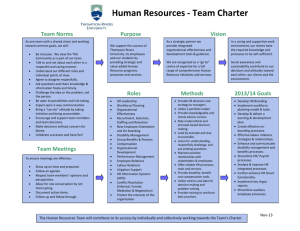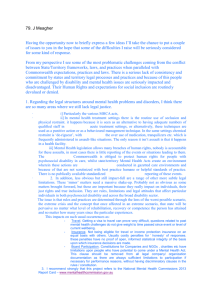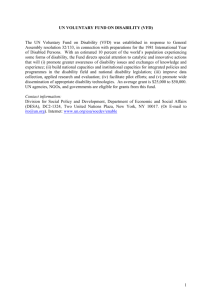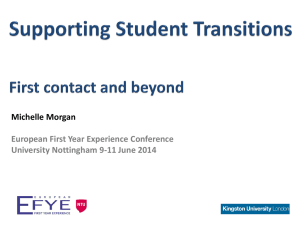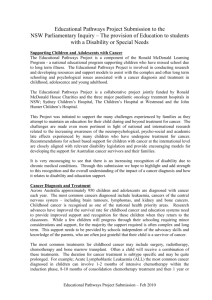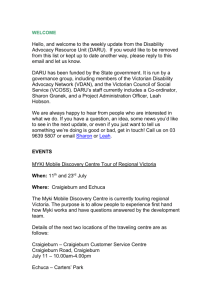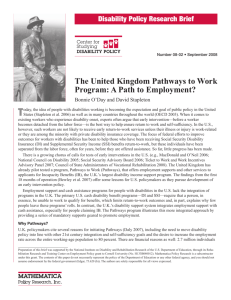Remote Pathway Grants
advertisement
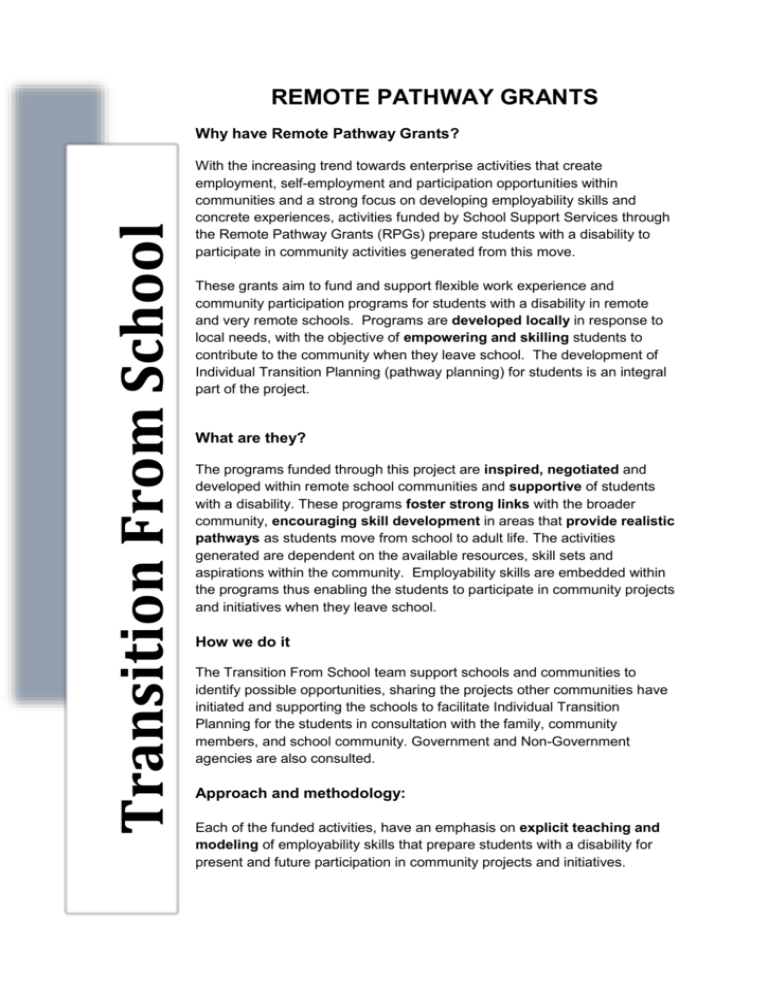
REMOTE PATHWAY GRANTS Transition From School Why have Remote Pathway Grants? With the increasing trend towards enterprise activities that create employment, self-employment and participation opportunities within communities and a strong focus on developing employability skills and concrete experiences, activities funded by School Support Services through the Remote Pathway Grants (RPGs) prepare students with a disability to participate in community activities generated from this move. These grants aim to fund and support flexible work experience and community participation programs for students with a disability in remote and very remote schools. Programs are developed locally in response to local needs, with the objective of empowering and skilling students to contribute to the community when they leave school. The development of Individual Transition Planning (pathway planning) for students is an integral part of the project. What are they? The programs funded through this project are inspired, negotiated and developed within remote school communities and supportive of students with a disability. These programs foster strong links with the broader community, encouraging skill development in areas that provide realistic pathways as students move from school to adult life. The activities generated are dependent on the available resources, skill sets and aspirations within the community. Employability skills are embedded within the programs thus enabling the students to participate in community projects and initiatives when they leave school. How we do it The Transition From School team support schools and communities to identify possible opportunities, sharing the projects other communities have initiated and supporting the schools to facilitate Individual Transition Planning for the students in consultation with the family, community members, and school community. Government and Non-Government agencies are also consulted. Approach and methodology: Each of the funded activities, have an emphasis on explicit teaching and modeling of employability skills that prepare students with a disability for present and future participation in community projects and initiatives. It is through student’s legitimate participation in work experience and enterprise activities that experiential learning takes place and students Transition From School learn to operate within a community of practice1. 1 Projects are conceived within the school community and in consultation with community members. The projects foster skill development needed to engage in ongoing involvement in community projects, whether paid or unpaid, when the students leave school. Project outcomes: This project has funded numerous community based work experience and enterprise activities in various remote schools across the Northern Territory. All activities have been locally generated creating realistic pathways for students with disabilities. Through student information available to us on the School Support Services Database it is evident that many students with a disability are disengaging from school at an early age. This project has a positive impact on student engagement and retention and also in developing the notion of transition and progression. All RPG activities demonstrate inclusive programs and how school communities can accommodate the obligations of the Disability Standards for Education within core education provision. Many of the activities are examples of a whole of community approach to education and work experience programs. All activities encourage innovation, allow for experiential, cooperative and reflective learning that equips students to ‘identify, create, initiate, and successfully manage personal, community, business, and work opportunities, including working for themselves’. (MCEETYA VET in Schools taskforce, Enterprise and Vocational learning Working Group March 2001) The activities funded in this project are all closely aligned with the Australian Curriculum and will contribute to positive student outcomes as mapped against the General Capabilities and key learning areas, including English and SOSE. Through these activities students with a disability benefit from the explicit teaching of employability skills and work related attributes needed and valued in the community for involvement in community employment. Communities of practice: learning, meaning, and identity. By Etienne Wenger, Cambridge University Press, 1998 Transition From School An Individual Transition Plan (ITP) is developed for each student. A person – centered approach is used in which the student’s strengths, capabilities, interests and preferences are the focus. Outcomes and goals are based on student and family’s vision for the future and their choices, needs and preferences A community audit is also conducted as part of the planning process. This gives a comprehensive overview of local resources, services and agencies available in the community. Appropriate natural supports and mentors are also able to be identified through this process. These planning activities give students, teachers and families valuable selfknowledge, understanding and networks to appropriately plan realistic pathways with students.





